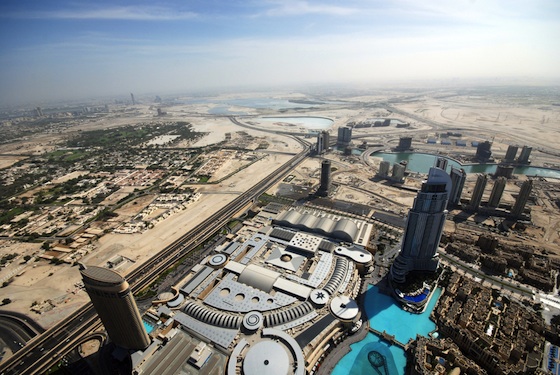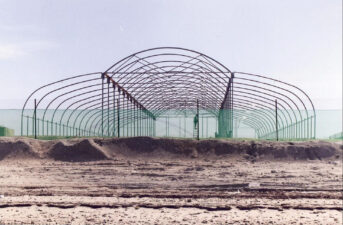We’ve been talking about chronic water shortages in the Middle East and North Africa for a long time. But now a new and troubling trend is beginning to emerge in the region: municipal, regional and national governments are taking more drastic measures to police water consumption.
Jordan broke out the big (security) guns to prevent its citizens from “stealing” what is actually a part of the commons and most recently, Dubai has threatened to punish water thieves in various neighborhoods throughout the emirate with fines of up to $2,722.
Water belongs to everyone
The editor of All That We share: A Field Guide to the Commons, Jay Walljasper notes that water belongs to everyone.
“Put simply, the water commons means that water is no one’s property; it rightfully belongs to all of humanity and to the earth itself. It is our duty to protect the quality and availability of water for everyone around the planet. This ethic should be the foundation of all decisions made about use of this life-giving resource. Water is not a commodity to be sold or squandered or hoarded,” he wrote.
Even so, it’s not a simple issue to address. Despite Dubai’s prolonged drought and notoriously short supplies of groundwater, more than 40 residents living in the Satwa, Al Quoz and Ras Al Khor neighborhoods of Dubai have been caught drilling for water, which is used to wash cars and for other personal use, according to Gulf News.
Perhaps accustomed to having as much water as the desalination plants could produce, Emiratis are not always conscientious of water conservation. Why should they be when their government has long subsidized water expenses (and energy.)
80,000 Groundwater wells at risk of drying up in the UAE
All of the emirates stopped exporting groundwater in February following a study conducted by the Ministry of Environment and Water that revealed that as many as 80,000 groundwater wells are at risk of drying up completely.
Accordingly, only companies that receive licenses from the Department of Economic Development and approval from the Dubai municipality are lawfully permitted to extract water.
Everyone else may have to pay up to nearly $3,000 for taking water illegally.
“The water you use should come from authorised channels,” Khalid Suletin, Director of Dubai Municipality’s Environment Emergency Office, told Gulf News.
But as shortages increase and authorized distribution channels short circuit (or favor the rich), we should expect a lot more thefts and stricter efforts to control them.
It is a sad state of affairs when human beings have to have permission for using what is the very essence of life.
Image credit: Arial view of Dubai, Shutterstock





Wow this is quite eye opening. It seems a bit harsh to punish people for drilling water. At the same time if quantities are limited, then keeping things fair across the board to prevent people from taking too much seems fair.